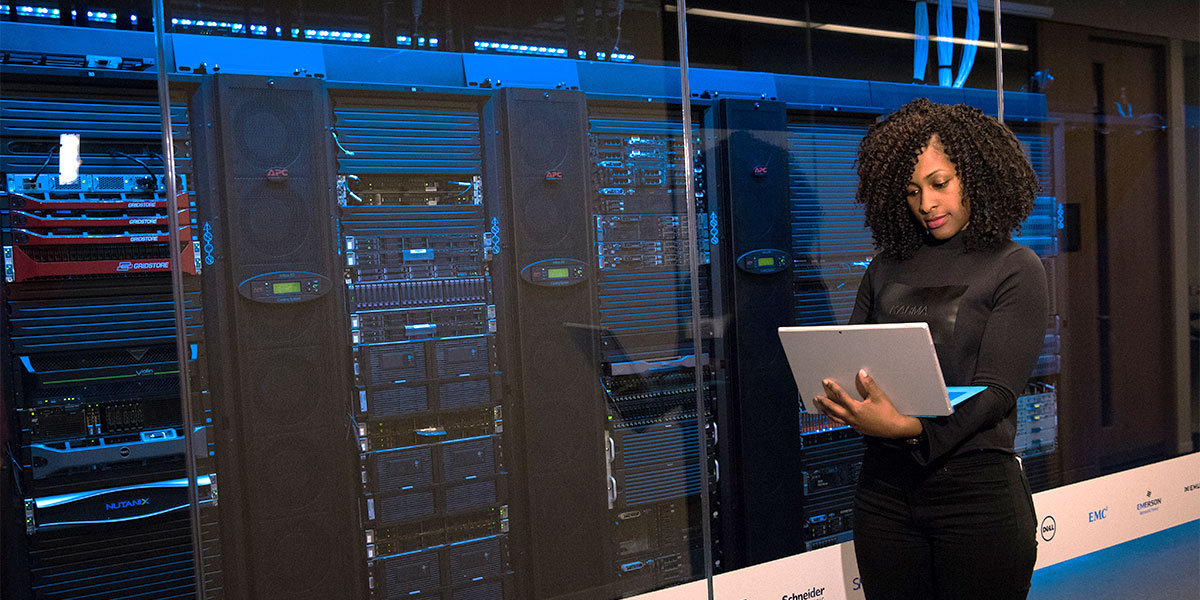More than the walls have ears! Have you experienced enjoying a conversation with a friend and then receiving ads on Google or Facebook related exactly to what you were talking about—even though you’d never done a search on that topic?
We've Moved!
Think Clearly has a new home! Click here to see our latest posts.
*If there’s older content you’d like to catch up on, you can browse right where you are, until Friday, April 5th.
We know it takes a minute to get used to change!
Stephen Abram

Recent Posts
Machine-Based Active Listening in Libraries: Technology Trends that Aren’t that Out-There Anymore!
Topics: Special Libraries, Artificial Intelligence, Strategy
Internet of Things and Libraries: Technology Trends that Aren’t “Out-There” Anymore!
Special librarians need to keep our eye on the Internet of Things, since it not only reduces the friction between user and their goals for turning on lightbulbs, meeting with each other, and managing their viewing habits, it’s already a long way into exploring the content universes that they rely on.
Topics: Special Libraries, Technology
Predictions for Social Media in Libraries: Technology Trends that Aren’t “Out-There” Anymore!
Social media is not a static creature. As we have seen, it is a powerful force for both good and bad. And it’s just a toddler now. What is coming up? There are quite a few trends in social media that can be used in special libraries to promote services and products.
Topics: Professional Development, Special Libraries, Technology
Machine-based Learning in Special Libraries: Tech Trends that Aren’t “Out-There” Anymore!
We’ve all heard of IBM’s Watson. Whether winning at Jeopardy or diagnosing medical conditions, it shows great potential and already has proven itself as a partner for humans. Honestly, I believe that it’ll do nothing but grow and develop as a learning machine. Machine-based learning in special libraries is an interesting area to explore.
Topics: Special Libraries, Technology
Augmented Reality in Libraries: Technology Trends that Aren’t “Out-There” Anymore!
Augmented Reality (AR) is a technology that superimposes a computer-generated image on a user's view of the real world, thus providing a composite view. What you may not know is that you can implement augmented reality in libraries, archives, and museums for free in less than five minutes.
Topics: Special Libraries, Technology
Special librarians too often hide much of the true professional added value of their work. To mitigate that, I think the following activities should be added to communication with end users—either collectively or individually—so librarians can demonstrate value and impact.
Topics: Professional Development, Strategy, Special Librarianship
This blog post on client engagement in special libraries is inspired by a reader comment. Thanks!
“I appreciate Stephen Abram's tips. Could you talk more of 'engagement'? How can special librarians 'engage' employees? THANK YOU!”
This reader comment has inspired me to think more deeply about how special librarians and information professionals need to behave differently on the customer engagement front. Yes, special librarians are different!
Topics: Professional Development, Special Libraries, Customer Engagement
Artificial Intelligence: Technology Trends that Aren’t “Out-There” Anymore!
In a recent post, I listed nine newer technologies not just on the horizon but quickly having an impact on both the consumer space and coming fast into our spaces—libraries, archives, museums, and galleries (the so-called GLAM sector).
For the next nine posts I’ll highlight some of the trends in each and explore the impact they may have on our profession and sector(s).
Topics: Artificial Intelligence, Technology
Tech Trends: Moving Beyond Transactions to Interpreting Behaviours
We scan the horizon—not just for survival—but for fun and professional development. We have entered a period where massive convergence is stepping up its game. We are no longer just dealing with the convergence of physical technologies into a standard device, as in the past decade where we saw phones, cameras, wallets and payments, loyalty cards, music players, video players, and gaming devices appear along with so much more on our ‘smart’ phones.
Topics: Professional Development, Technology, Special Librarianship
Capstone Post: Part 6—How do We Align Research Results with Decision-Making?
As special librarians, we connect clients to information and data. Our struggle is influencing the overall process of knowledge creation and the best behaviors for successful decision-making.
Knowledge Ecosystems and the Pivotal Role of the Special Librarian
Nancy Dixon has written a great post about what special librarians can do in strategic support of their users, titled Three Eras of Knowledge Management. It fits nicely with my own position that it’s not possible to actually manage knowledge. I may be being a bit heretical here—but I believe we need to understand this deeply to know the difference between data professionals, information professionals, and knowledge workers.
Topics: Knowledge Management, KM, Special Librarianship
In Special Library Land we often refer to marketing or advocacy. I do not personally like those words as frames for such activities. I like to call it what it is: INFLUENCE.
Topics: Professional Development, Special Libraries, Marketing

Community Asset Mapping is a great tool for looking at your potential partnerships, markets, audiences, and more. While it is widely used in the public sector—public libraries, healthcare, social services, urban planning, etc.—it promises to be a potentially very strong tool for special librarians to ‘map’ their internal and external communities.
Topics: Professional Development, Special Libraries, Strategy
Part Five: Aligning Research Results with Decision-Making—Mind Mapping and Boxes
In my country (Canada), mind mapping is in the curriculum from a very early age. This skill is a foundation for critical thinking and, indeed, project and report creation and development—as well as beginning the research, discovery and exploration process.
Topics: Professional Development, Special Libraries, Strategy
Part Four: Aligning Research Results with Decision-Making—SWOT and Fish Bones
I’ll bet you’ve done SWOT a lot. It’s a classic technique but one which benefits, I believe, from fish bone force field diagramming. It’s easy to do and, with good facilitation, mines the brains in the room quickly.
Topics: Professional Development, Special Libraries, Strategy
Part Three: Aligning Research Results with Decision-Making—Tools to Inspire Creativity and Encourage Divergent Thinking
In this third post in my series about interesting frameworks and tools for thinking about the value-add we can provide in our product and service design, I’ll outline three tools I use all the time—sometimes alone, and sometimes in collaboration with others.
Topics: Professional Development, Special Libraries, Strategy
Part Two: Aligning Research Results with Decision-Making—Thinking About Thinking (Edward de Bono)
In my previous post, I wrote about how analyzing the ways in which thinking and decision-making happen offers interesting frameworks special librarians can use to strategize about the added value we provide in our product and service design. In this post I outline one of my favourites—Dr. Edward De Bono’s Six Thinking Hats.
Topics: Professional Development, Special Libraries, Strategy
Part One: Aligning Research Results with Decision-Making—SWOT, 4-Squares, Fish Bones, and More
Sometimes special librarians struggle to define the right level of value-added service to deliver. I’ve been thinking about this a lot lately and considering what are the most important frameworks and ways to add value.
Topics: Professional Development, Special Libraries, User Engagement


















